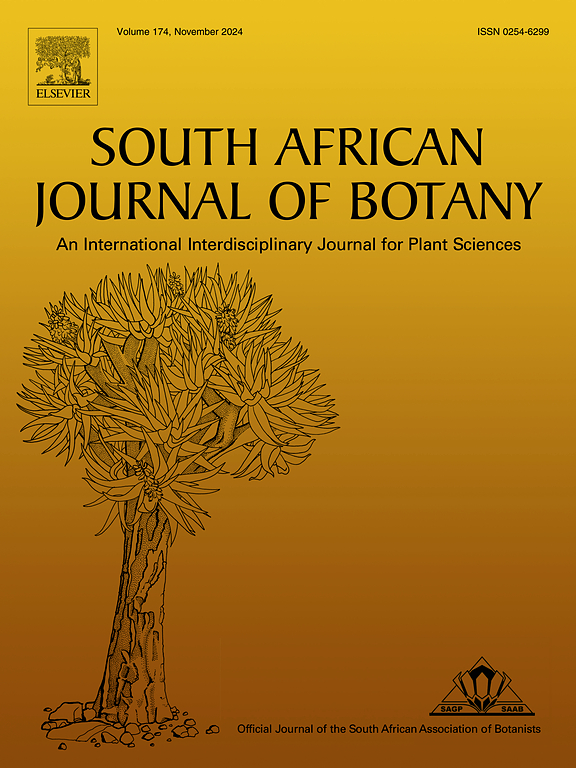Synthetic bacterial communities regulate polyamine metabolism and genes encoding antioxidant defense system to enhance arsenic tolerance of rice
IF 2.7
3区 生物学
Q2 PLANT SCIENCES
引用次数: 0
Abstract
Arsenic (As) contamination in soil represents a major challenge to global agriculture, threatening crop productivity and food security, making the development of effective mitigation strategies essential for sustainable farming. Synthetic bacterial communities (SynCom) improve host plants ability to withstand As stress by several mechanisms. It is well known that polyamines (PAs) strengthen the antioxidant defence system, prevent ethylene formation, preserve cell pH, and shield plant cells from the damaging effects of As, and so forth; nevertheless, it is still unknown how SynCom modify PA metabolism to improve plant resistance to As. Pot experiment was carried out to evaluate how SynCom affects root PA homeostasis, hydrogen peroxide (metabolite associated with PA), genes encoding antioxidant system and expression and activities of PA-associated degrading and synthesizing enzymes in rice subjected to As. SynCom inoculated plants exhibited maximum growth attributes, gene expression of two plasma membrane intrinsic protein, leaf water potential, and chlorophyll contents than non-inoculated plants exposed to As stress. With increased activity of PA catabolic enzymes (copper-containing diamine oxidase, CuAO; polyamine oxidase, PAO) and putrescine synthases (ornithine decarboxylase; arginine decarboxylase, ADC), SynCom inoculated plants resulted in higher putrescine and cadaverine concentrations but lower spermidine and spermine contents. Under As stress, the SynCom inoculated plants resulted in up-regulation of spermine synthase gene, OsSPMS, and down-regulation of PA catabolic enzyme genes (OsCuAO6, OsCuAO8, OsCuAO1 and OsCuAO2) and PA synthase genes (OsADC2 and OsADC1). As stressed plants inoculated with SynCom had higher level of expression in OsPAO1, OsPAO2, OsPAO3 as compared to non-inoculated plants, stimulating reactive oxygen species-associated stress responsiveness signaling through low H2O2 levels by enhancing the genes encoding antioxidant defence system (OsCu/Zn-SOD, OsCAT1 and OsMn-SOD). The results of this study showed that SynCom can alter PA metabolism to improve plants' resistance to heavy metals like As. The inoculation of SynCom emerges as a promising strategy to enhance plant resilience against As toxicity by promoting positive interactions and regulatory stress-responsive pathways. Furthermore, the inoculation of SynCom is a viable approach capable of ameliorating heavy metal stress and improving the productivity of crops in the contaminated soil by fostering positive interactions and stress responsive regulatory mechanisms.
求助全文
约1分钟内获得全文
求助全文
来源期刊

South African Journal of Botany
生物-植物科学
CiteScore
5.20
自引率
9.70%
发文量
709
审稿时长
61 days
期刊介绍:
The South African Journal of Botany publishes original papers that deal with the classification, biodiversity, morphology, physiology, molecular biology, ecology, biotechnology, ethnobotany and other botanically related aspects of species that are of importance to southern Africa. Manuscripts dealing with significant new findings on other species of the world and general botanical principles will also be considered and are encouraged.
 求助内容:
求助内容: 应助结果提醒方式:
应助结果提醒方式:


